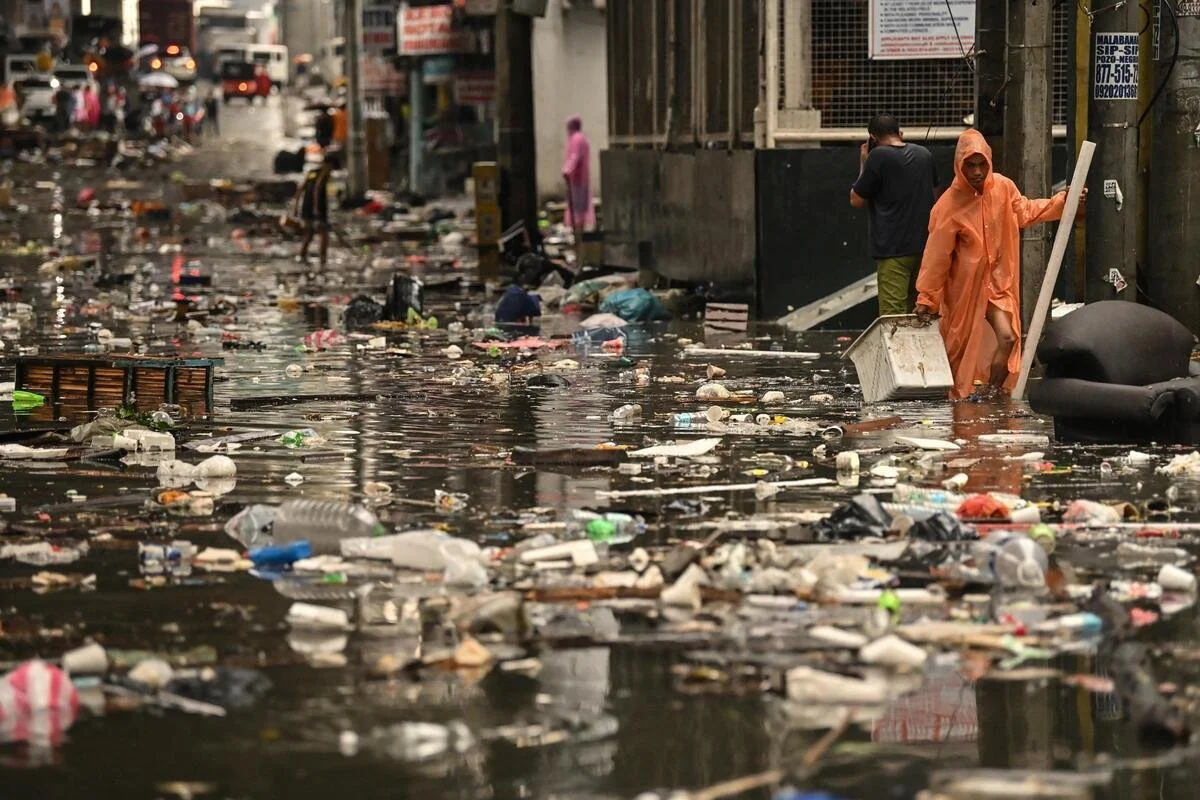The Role of Recyclers in Mitigating Flooding
How Community Action and Circular Solutions can Make Our Communities Flood-Free
By: The Plastic Flamingo — Christian Aaron Orot
Parts of Metro Manila were left flooded with the heavy rains brought by Severe Tropical Storm “Crising” (international name: Wipha) and the enhanced southwest monsoon, © Noel Celis / Greenpeace
When torrential rains hit cities across the Philippines, flooding becomes more than just an inconvenience—it’s a recurring crisis that disrupts lives, damages property, and puts vulnerable communities at risk. While many factors contribute to urban flooding, one often overlooked culprit is plastic waste.
Plastic packaging, single-use bags, and other improperly discarded plastics often end up in drainage systems, blocking waterways and preventing proper water flow. These clogs significantly increase the chances of floods, especially during typhoon season.
The urgency of this work cannot be overstated. In July 2025, the MMDA reported over 600 tons of waste recovered from pumping stations and flooded areas across Metro Manila—a stark reminder of how unmanaged plastic waste directly worsens flooding risks. Through collective action and shared responsibility, we can prevent these recurring problems and turn waste into resources that benefit both people and the planet.
This is where organizations like The Plastic Flamingo (The Plaf) step in. By collecting and recycling plastic waste—particularly plastic materials that are ocean-bound, those that clog landfills, and plastic waste that will most likely end up in the ocean—Plaf helps divert trash away from drainage systems and critical waterways by transforming plastic waste into sustainable solution. Through its recycling efforts, Plaf transforms discarded plastics into eco-boards, which can be used to build furniture products like school chairs and other useful eco-products, as well as sustainable materials that can penetrate the construction industry.
But recycling is not a one-way street. Community participation is key. When households, schools, and organizations actively segregate and donate their plastic waste, they become part of a larger solution that prevents flooding while promoting sustainability.
Plaf’s model proves that recycling isn’t just about reducing landfill waste—it’s about preventing communities and the environment to the possible natural disaster that may happen like flooding.. Every kilo of plastic collected is a step toward clearer waterways and flood-free neighborhoods. Beyond recycling, Plaf also strives to educate people about sustainable practices and actively partners with businesses on CSR projects that create lasting environmental and social impact.
What can you do?
Practice waste segregation at home and in the workplace
Support community-based recycling efforts
Partner with recyclers like PLAF
Choose reusable over disposable products
In the fight against flooding, sustainable habits and local action can make all the difference. Let’s take part in building a cleaner, more flood-resilient future—one plastic bottle at a time.
Source: GMA News – MMDA: Over 600 tons of waste recovered from pumping stations, flooded areas
Green space — AMID Flooding, Groups call on PH to Lead on Plastics Treaty



